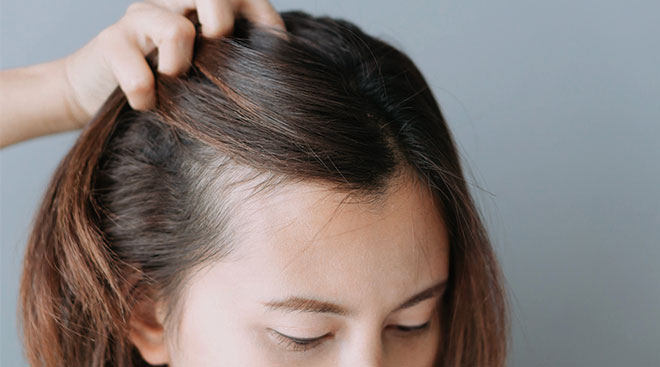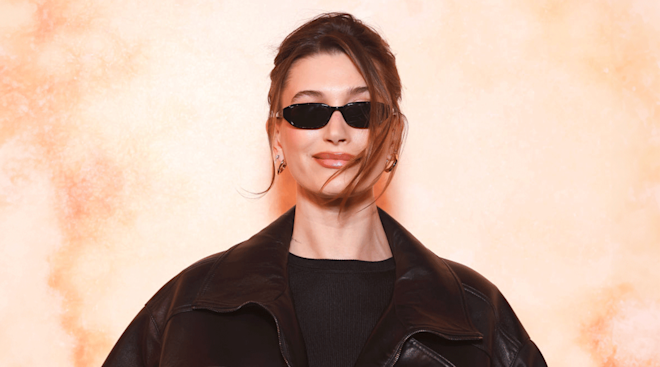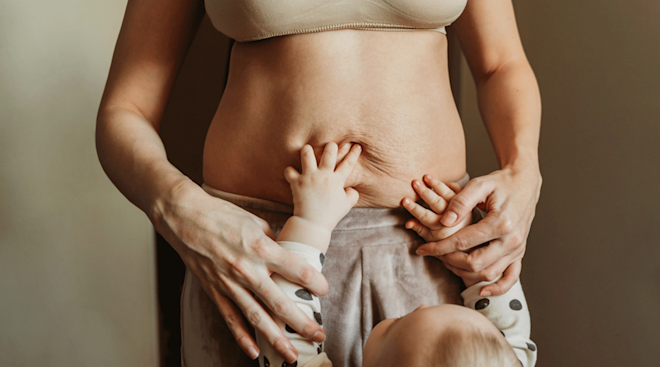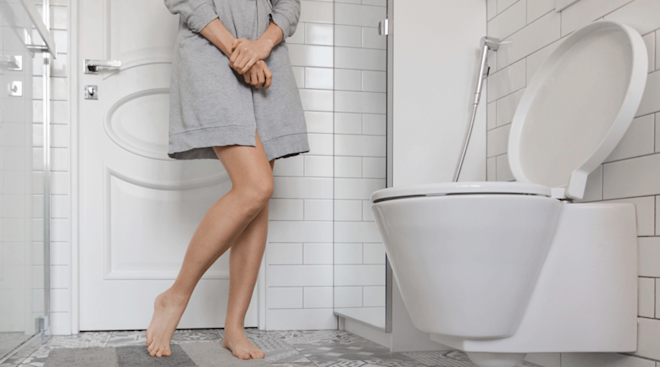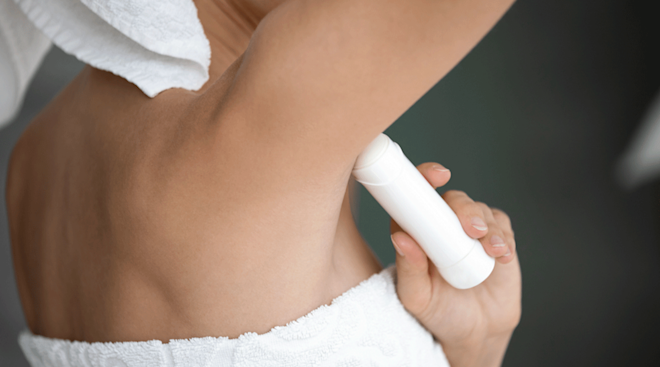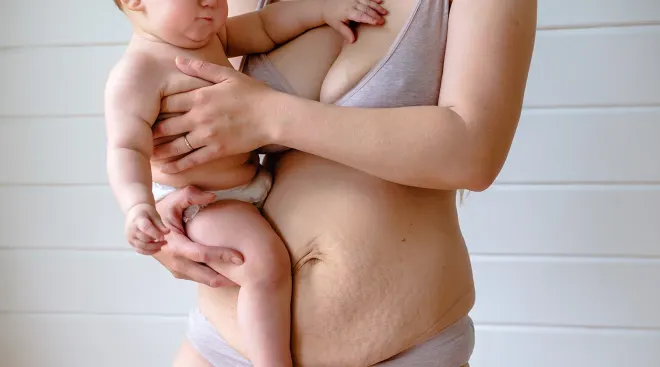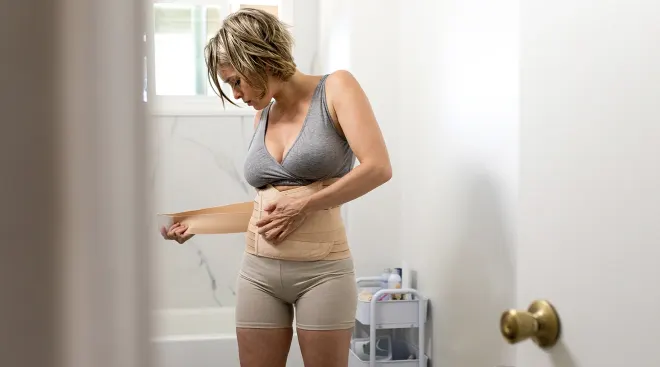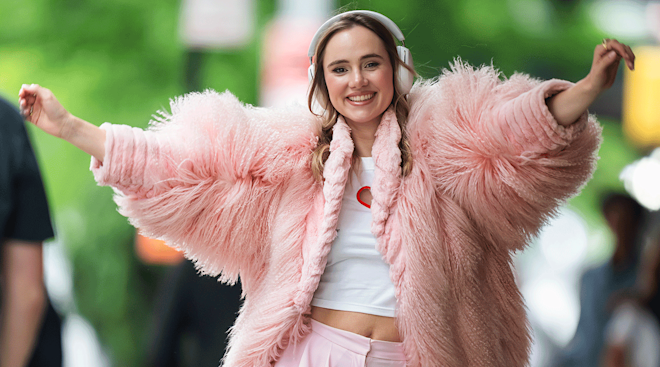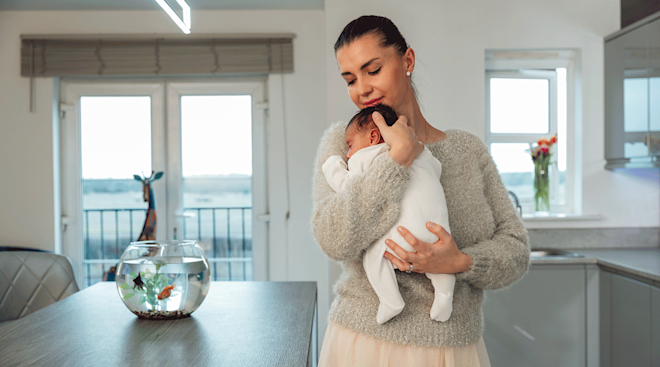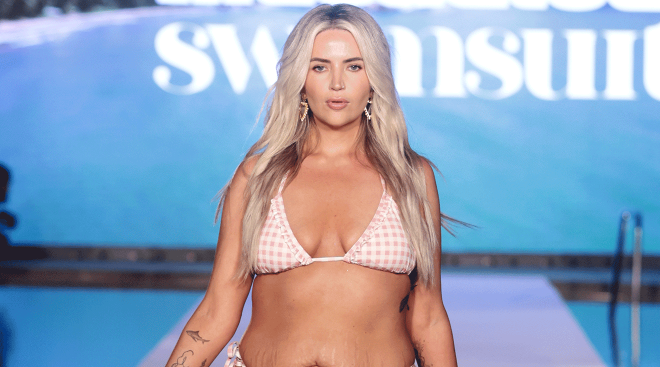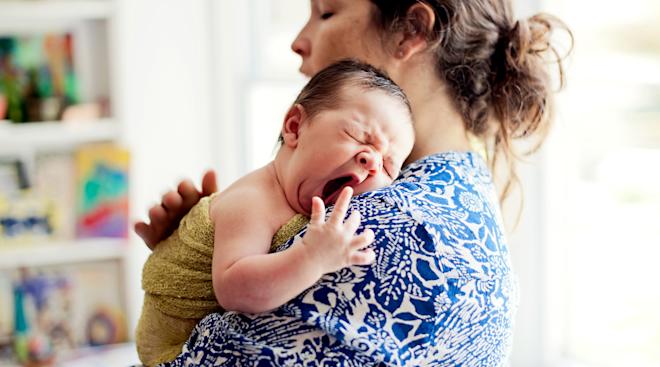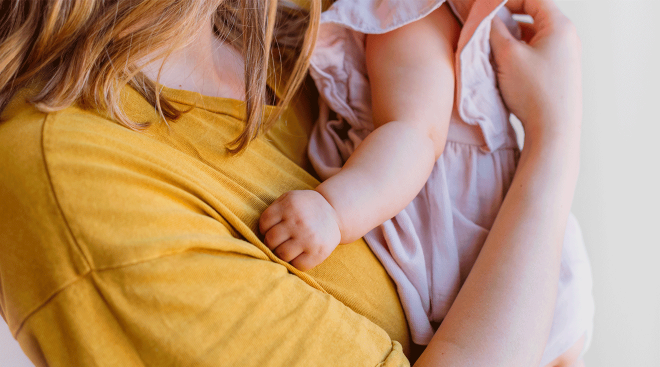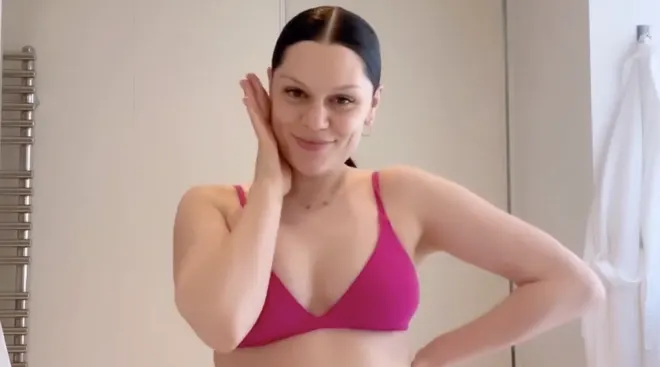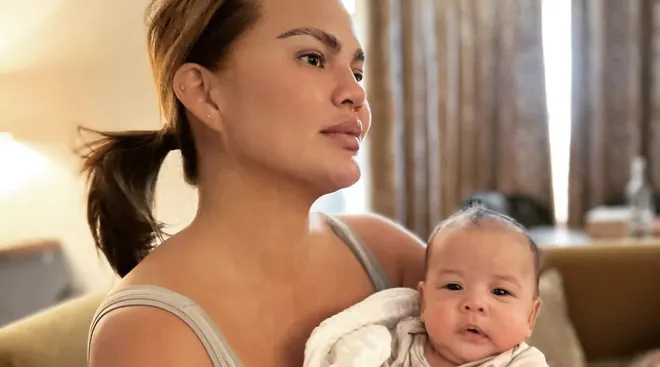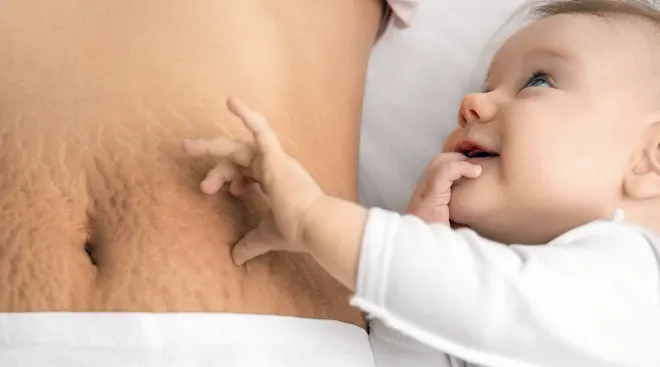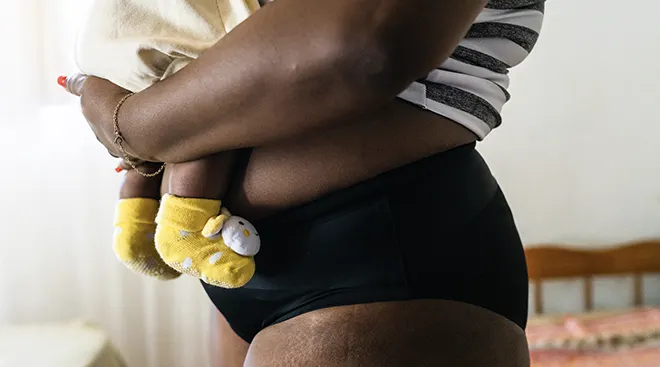What to Do for Postpartum Hair Loss
Three or four months after baby is born, you may start to feel like you’re ready to emerge from that bleary-eyed newborn fog. You’ll have some experience under your belt and maybe even the semblance of routine. What’s more, you (and baby!) will hopefully be sleeping for longer stretches of time. Along with this restorative transition, you may have a renewed desire to care about how you look. But before you dial the salon and schedule an appointment for the works, be warned: Change could be coming. You may wake up one day soon to find that your hairline looks like it’s receding, your buns are wimpy and you’re leaving clumps of strands in the shower drain. And just like that, you’ve reached the postpartum hair loss stage—officially known as telogen effluvium. Unfortunately, it’s real, and it’s not the confidence -boost you were hoping for.
It might sound alarming, but the simple reality is that postpartum hair loss impacts most women after the stress of giving birth. And while it’s completely normal and temporary, it can still feel shocking to see tufts of hair in your brush or comb. So what causes postpartum hair loss and what can be done to prevent or lessen the shedding? Here’s the scoop on hair loss after pregnancy and what you can do about it.
According to the American Pregnancy Association, hair loss after pregnancy affects 40 to 50 percent of women. And while doctors don’t definitively know what causes postpartum hair loss, it’s generally believed to be a result of stress from giving birth. “[It’s] biologically kind of traumatizing,” says Julia Tzu, MD, founder and medical director of Wall Street Dermatology and clinical assistant professor at New York University Grossman School of Medicine. “[Postpartum hair loss] fits into the categories of hair loss as precipitated by psychological and physiological stressors.”
Suffice it to say that giving birth is hard on your body and mind. “When you’re under stress, your hair is not the priority—the body prioritizes organs,” says Jenny Murase, MD, director of medical consultative dermatology at the Palo Alto Medical Foundation in Mountain View, California. “Stress does not encourage hair growth.”
Psychological factors like postpartum depression contribute to postpartum hair loss, as do physiological occurrences like blood and fluid loss during birth and not getting enough sleep after baby is born. Murase explains that these things can disrupt your hair growth cycle, shifting a larger amount of hair from the actively growing phase (anagen) into the resting phase (telogen); these follicles are more likely to fall out from simple acts like combing or washing your hair. It’s worth noting that this physical phenomenon isn’t exclusive to pregnancy; hair loss can also happen as a result of major surgery or some other type of “big thing that happens to the body,” adds Murase.
What’s more, there’s also “a precipitous decline” in both estrogen and progesterone after baby is born, says Tzu. Hormones coursing through your body during pregnancy keep most of your hair in the growth stage for longer, accounting for that extra fullness and lustrous shine typical of so many glowing moms-to-be. After the birth of baby, hormone levels will return to normal, and the typical hair loss that was delayed during pregnancy happens almost at once, according to the American Pregnancy Association.
It’s also important to note that there are cases where hair loss is caused by an underlying condition, like issues with your thyroid, low vitamin D levels or anemia. If you feel like your hair loss after pregnancy is excessive, ask your doctor about running some blood tests. If your postpartum hair loss turns out to be chronic due to one of these conditions, Murase says you may want to consult with a dermatologist to try a more involved treatment.
If you’re waiting with bated breath every time you run a comb through your tresses, know that there’s no definitive timeline for when you’ll experience postpartum hair loss. It can happen anytime between one and six months postpartum. However, most women notice thinning spots around their crown or temples roughly three months after baby’s birth.
Inquiring minds want to know: How long does postpartum hair loss last? Rest assured that this funky hair phase will pass. It’ll take time for regrowth, but you’ll get there. Postpartum hair loss usually peaks three to four months after delivery and then tapers off; you may notice that any hair clumps in your drain or brush are smaller. Though shedding lots of hair is frustrating, it’s important to remember that this is temporary, says Tzu. Your tresses should start looking more like they did before you were pregnant within six to 12 months. “The main thing you can do is wait—and, over time, the shedding is going to normalize and go back to what it was before,” says Murase.
There’s not a whole lot you can do to prevent hair loss after pregnancy. You can try to minimize loss, though, by taking prenatal vitamins, advises Tzu. Ideally, you want to take them before conceiving, throughout pregnancy and during the postpartum stage. What’s more, taking preemptive measures to help reduce your stress level after baby is born may curb some hair loss. “Anything you can do to ensure that following the birth of your baby you’ll be less stressed would be helpful,” says Murase. “Set up a lactation consultant if you’re having trouble breastfeeding and have some type of support structure in place.”
Tzu recommends yoga, a healthy diet and “getting as much help as you can with the baby.” The American Pregnancy Association lists a few other things that might head off some postpartum hair loss:
-
Eat a diet high in fruits and vegetables. The nutrients may provide protection for hair follicles and encourage hair growth.
-
Forgo tight hairstyles. Pigtails, cornrows, hair weaves, braids and tight hair rollers can stress your hair.
-
Be gentle with wet hair.
-
Use the cool setting when blow-drying your hair.
You may be tempted by marketing for postpartum hair loss vitamins, shampoos or remedies. But the frustrating truth is that, for women experiencing hair loss after pregnancy, the best course of action usually involves waiting it out and remaining patient. In the meantime, Tzu has a few simple tips on how to help postpartum hair loss appear less pronounced:
-
Use volumizing shampoo. Its proteins may help your hair look fuller.
-
Use conditioner on the ends of strands only. Using it on your whole head can weigh the rest of your hair down, making it look limp.
-
Consider biotin supplements. Taking a biotin supplement might help strengthen individual strands of hair, but it won’t do much for actual hair loss or thinning, says Murase. Be sure to let your doctor know if you’re taking biotin supplements; it can make thyroid lab test results inaccurate.
-
Minoxidil. Better known as Rogaine, this over-the-counter topical treatment is meant to open hair follicles for new growth.
-
Platelet-rich plasma (PRP) treatment. During this procedure, a doctor draws your blood, separates the platelets from the plasma and then injects the plasma back into your scalp, which can help repair blood vessels and promote healing.
These treatments may sound promising as you’re staring down your postpartum thinning hair line, but they’re really only effective and recommended for women with chronic hair loss due to some other biological trigger. “We know [postpartum] hair loss will occur and you can’t stop it—it will happen,” says Tzu. “Once the hair comes out of the scalp, new hairs are coming back out, and it’s only a matter of time as to when you see that hair repopulate the scalp into your normal, thicker-caliber hair.”
The postpartum phase is full of all sorts of awkwardness; hair loss after pregnancy is just one unpleasant surprise you may encounter. Fortunately, in time, your “do” will be full and fabulous again. But, for now, the messy mom bun looks good on you.
Please note: The Bump and the materials and information it contains are not intended to, and do not constitute, medical or other health advice or diagnosis and should not be used as such. You should always consult with a qualified physician or health professional about your specific circumstances.
Plus, more from The Bump:
Jenny Murase, MD, FAAD, is an assistant clinical professor at the University of California San Francisco and director of medical consultative dermatology at the Palo Alto Medical Foundation. She earned her medical degree from the University of California in Irvine.
Julia Tzu, MD, FAAD, is the founder and medical director of Wall Street Dermatology and clinical assistant professor at New York University School of Medicine. She earned her medical degree from Johns Hopkins School of Medicine in Baltimore, Maryland.
American Pregnancy Association (APA), Hair Loss During Pregnancy
Learn how we ensure the accuracy of our content through our editorial and medical review process.
Navigate forward to interact with the calendar and select a date. Press the question mark key to get the keyboard shortcuts for changing dates.
































